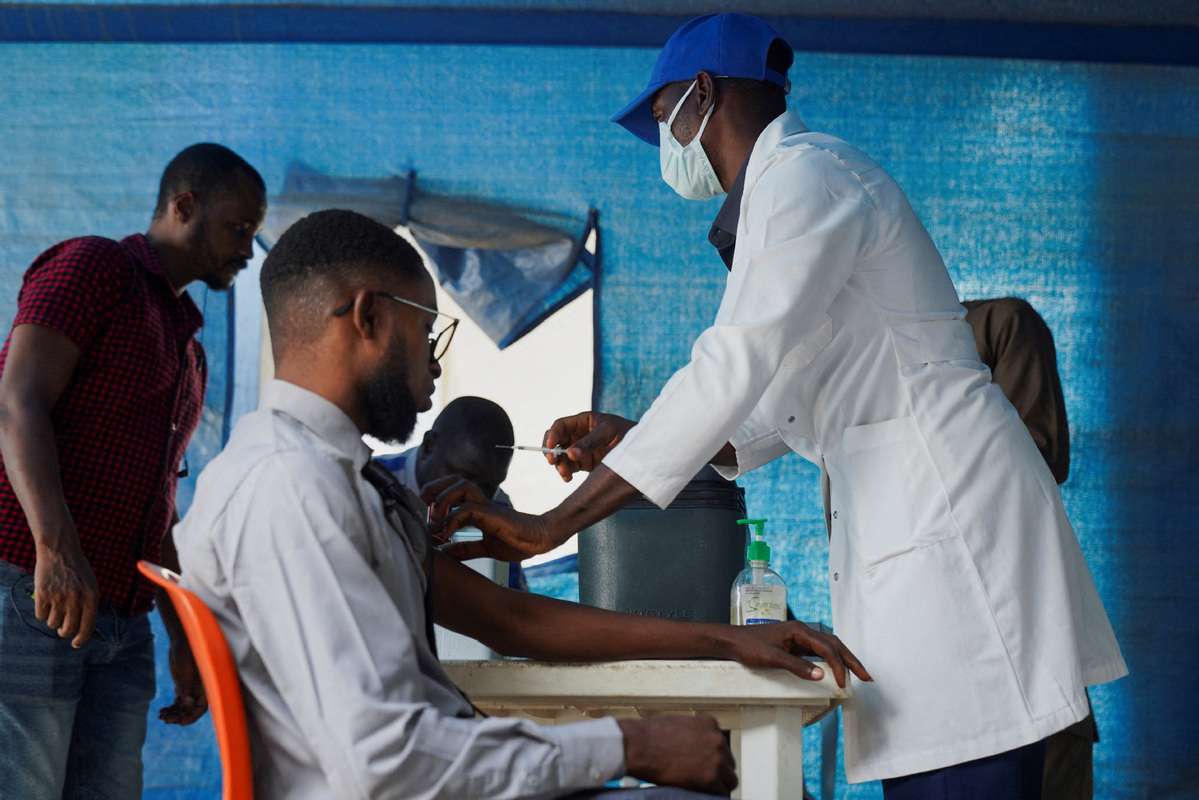


A Nigerian health official administers a mpox vaccination to a man, at Federal Medical Center in Abuja, Nigeria, Nov 18, 2024. [Photo/Agencies]
Implementing the One Health approach could effectively control and prevent the increasing rate of zoonotic disease outbreaks in Africa, which have become a severe threat across the continent, experts say.
Zoonotic diseases are infectious diseases that spread from animals to humans.
Mbaabu Mathiu, a professor of environmental physiology and ethnomedicine, said that in the past 10 years, about 60 reported epidemics in Africa have been zoonotic diseases.
Since the beginning of this year, the continent has witnessed the biggest outbreak of mpox in recent years, with more than 13,000 laboratory-confirmed cases reported as of mid-November, according to the World Health Organization. In the Democratic Republic of Congo, one of the countries hardest hit, the highly contagious zoonotic disease is suspected to have killed at least 900 people.
Mathiu said the One Health approach would be effective because it brings together both veterinary and human medical professionals to do the prediction and surveillance, as well as to prepare for and respond to epidemics and pandemics.
It is an integrated approach to healthcare that recognizes the close links between human, animal, and environmental health and considers how they affect one another.
"Human health, animal health, and ecosystem health are intertwined; none of these components will be healthy without the health of the others," Mathiu said. "Microorganisms and diseases are shared by these three components, hence, health should be looked at holistically."
The African Union, the WHO and the World Organization for Animal Health have adopted the One Health approach, initially launched in 2008 at an international conference on avian and pandemic influenza in Egypt.
"The only challenge for its implementation is that it takes time for an idea to permeate to the general population and particularly among health workers to become part of the policy," Mathiu said.
Mathiu highlighted the need for investment in awareness creation among local communities and education of the general public on environmental degradation and zoonotic disease outbreaks.
Julius Oyugi, director of research at the Institute of Tropical and Infectious Diseases at the University of Nairobi, said most of the zoonotic disease outbreaks occur in central Africa, where bushmeat consumption is very common, thus increasing the chances of people coming into contact with pathogens from animals.
Viruses have also been evolving, becoming more adaptable to transmission among humans, Oyugi said.
To reduce the outbreaks, he emphasized the need for stringent surveillance programs both at the animal level and in human beings to identify early cases before they spread to the larger population. This should be followed by contact tracing and quarantine measures, he added.
点击右上角![]() 微信好友
微信好友
 朋友圈
朋友圈

请使用浏览器分享功能进行分享
